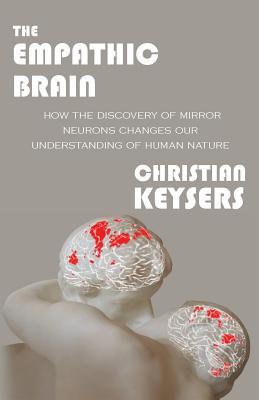The discovery of mirror neurons has caused an unparalleled wave of excitement amongst scientists. The Empathic Brain makes you share this excitement. Its vivid and personal descriptions of some of the most exciting discoveries in the history of brain science make it a captivating and refreshing read. Through intellectually rigorous but powerfully accessible prose, Prof. Christian Keysers makes us realize just how deeply mirror neurons change our understanding of human nature. You will start looking at yourselves differently - no longer as a mere individual but as a deeply interconnected, social mind.
The Content
Your heart beats faster as you watch a tarantula crawl on James Bond's chest in the movie Dr No, your hands sweat and your skin tingles under the spider's legs. You feel scared, tense, and finally relieved when Bond manages to escape the danger. We are essentially empathic. But what is empathy? How does your brain enable you to feel so much of what 007 is feeling? How do you connect with people in real life, people you love or even strangers? In this book, you will visit leading labs to find your own answers. The journey starts where 'mirror neurons' were discovered. The door of a lab in Parma, Italy, opens to reveal that your motor system not only controls your own body - it becomes automatically activated each time you see others move. A little later, you lie down on a bed and slowly move into the bore of a brain scanner in Marseille, becoming a subject in an experiment that will show how your own sensations and emotions are automatically triggered while you witness those of others. These experiments unravel the mirror in our brain that lets our own actions, sensations and emotions resonate with those of Bond and the people around us. By sharing their inner lives, we connect with them. We are hard-wired for empathy. By looking at autistic individuals and psychopathic criminals, by comparing men and women, by exploring empathy for robots and enemies, this book explores the multifaceted nature of empathy and evidences both its power and limits. Science begins to reveal the wisdom of why so many of the world's religions command "do unto others as you would have them do unto you."
Praise
If anyone can write about the brain mechanisms of empathy, Keysers is the man. A page turning read. A grand perspective on many aspects of the empathic brain. He explains why we should re-think morality, education and ethics in light of the way we have evolved to resonate with each other. A book ahead of the game. A great authoritative read.
Prof. Bruce Hood, 2011 Royal Institution Christmas Lecturer, Bristol University for The Psychologist.Christian Keysers has the combined skills of a hard-core animal neuroscientists, the talents of a human brain imager, and the sophistication of a theoretician. This book takes us on a critical journey of the discovery of mirror neurons (he was part of this journey), our understanding of empathy, imitation, and language. Though many have written about mirror neurons, this book outshines them all. If you want an honest account of mirror neurons, how they work, and what we can learn from them, read Keysers' book.
Prof. Mark Hauser, Harvard University, author of Moral Minds.